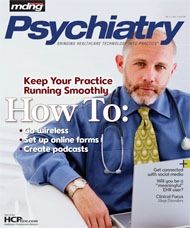Congress Passed the Stimulus Bill; What Should You Do Now?
Physicians who see Medicare patients are practicing in very difficult times.
Physicians who see Medicare patients are practicing in very difficult times. The Obama administration wants to continue to not only cover the elderly who pay for an insignificant portion of their healthcare but to also add on an extra 40 million people who currently are uninsured. President Obama wants to pay for this primarily through taxing the rich and Medicare cutbacks.
The administration wants to set limits on payment growth for medications, hospitals, and physicians by implementing a nationwide certified EHR (c-EHR) system, which can be used to control physician independence, to further strain the physician—patient relationship, and to facilitate control by government bureaucrats of the way that healthcare is administered.
On February 13, Congress passed the $787 billion economic stimulus bill, which, among other things, calls for up to an eventual 5% penalty for non-participation in new HIT mandates if less than 75% of physicians are “meaningful c-EHR users.” Through the bill, Congress wants physicians to pay for a c-EHR system that is costly in terms of software, hardware, and training. The Department of Health and Human Services (HHS) has yet to define what constitutes “meaningful use” of a c-EHR, but pundits say it will include e-prescribing, decision support, and quality data reporting, functionality that will require increased computer time for physicians and less face-to-face patient time. Adopting these technologies may well hamper a physician’s ability to see enough patients in order to maintain the financial viability of his or her practice. This administration wants to pay physicians who perform according to the stringent usage and reporting parameters up to a paltry $44,000 over five years, if they do manage to get paid at all.
PC_HR.1_0409.JPGThose physicians who are not planning to comply with these new Medicare mandates have options that can actually stabilize, and possibly increase, their gross office incomes:
1) Change your Medicare participation status from a participating provider to a non-participating provider, which allows you to legitimately increase reimbursement by charging the “limiting fees,” which represent the maximum allowable reimbursement (15% over Medicare’s approved amount). To learn more about the plusses and minuses of becoming a mid-level participant, check out www.aafp.org/fpm/20030900/ask.html or www.acponline.org/pmc/ medicare_options08.pdf.
2) “Opt out” and quit your Medicare participation altogether. Generally, you need to sign an opt-out affidavit that, among other things, states that you cannot re-apply for Medicare participation status for two years. The good thing is that you can then contract any fair payment arrangement directly with patients.
3) Add an extra patient a day (say, $75 x 200 days) for an off set of $15,000 a year, or an increased income of $75,000 over five years.
4) Start a cash-only ambulatory acute care clinic, which is associated with-on-the-spot payments and no third-party intermediaries.
5) Start a “concierge clinic,” charging patients a yearly amount that covers issues such as availability and expediency.
6) If you’re in a solo practice and it becomes untenable, but you still wish to provide patient care, then join a group, begin visiting nursing homes, become a hospitalist, or become a full-time clinical professor at your local medical school. There will be no overhead costs, and you’ll receive a stable paycheck.
7) Change careers—become an author, a researcher, or a professor.
These are all difficult choices, but the practice landscape is changing quickly, requiring all of us to make important, well-informed decisions regarding our futures.
Whatever alternative choice you make will send a message to Congress that the bailout bill HIT provisions are driving out physicians from the Medicare program.
Alberto Borges, MD, is in private practice and is an associate clinical professor of medicine at the George Washington University in Washington, DC. Check out his website at http://msofficeemrproject.com. The opinions expressed in this column do not necessarily reflect those of MDNG.
